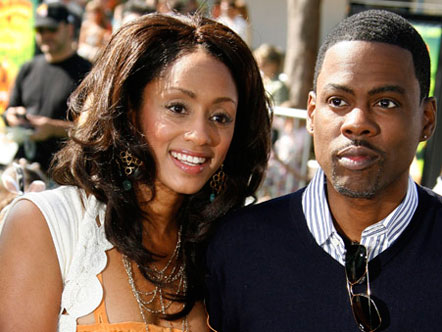
We should not expect Chris, his wife, or his children to subscribe to our own individual relational prescriptions about what should and should not happen. With that said, I offer my sentiments about how divorce happens among some couples and a few strategies to reduce the likelihood of separation in your relationship.
Sign Up for the Black Doctor Newsletter!
How does divorce happen?
Divorce typically happens when relational expectations and assumptions go unmet and one or both parties do not have the skill set to resolve behavioral, emotional, sexual, financial, and/or spiritual issues.
Moreover, if one or both parties have experienced some sort of betrayal (e.g., cheating), the subsequent outcome may be traumatic enough to not enable one or both parties to move to a place of forgiveness or reconciliation.
So in other words, if you and your partner fail to talk about who you are, what you want, how you feel, and/or what you need, there exists the possibility that your partner will not be able to be “there” for you. The reason that they aren’t there for you is not because they don’t want to be; but that you have not shared with them in a way that they understand how to be there.
If you find yourself repeating the same thing over and over and your partner continues to make the same mistakes, perhaps you should seek support (e.g., therapist, pastor, or life coach) who can help you share differently and possibly help your partner listen differently.
It should be kept in mind that there are some people who actually get exactly what they ask for in a marriage, but find themselves afraid of their own vulnerability to someone who can genuinely meet them where they are at.
Said differently, you may think you want someone to really listen to you, be appreciative of you, be attentive to your needs, or love you unconditionally, but the reality is that you are uncomfortable with your sense of self and the possibility of someone truly being “there” for you.
Rather than accept how great you have it in your relationship, you play games, run, or give confusing messages to your partner about how happy you really are.
People get divorced for all different kinds of reasons and unfortunately the real reason is rarely revealed to the other partner. When I spend time with my clients who are exploring the possibility of divorce, underneath the unmet expectations and assumptions, the money, the sex, the inappropriate parenting, and disrespect that they have argued about, is the emotional state of fear.
It is the fear of being vulnerable again; fear of abandonment; fear of loneliness; fear of rejection; fear of authentic happiness; or fear of honesty that propels people to walk away from their marriage or relationship.
I’m not suggesting that fear is a bad thing in a relationship because it is a real emotion and we all experience it at some time or another. I am suggesting that if you allow fear to paralyze you and not talk about your fear in the context of the relationship, you may not be giving yourself, your partner, or your lifetime commitment the opportunity to be as special as when you made the decision to be together.
Seven years?
A colleague of mine asserted that people usually know the marriage will end seven years before the divorce actually happens. We might be able to argue that people know during the courtship process if the relationship will be able to endure the rigors of life, love and happiness. If your partner cannot communicate about what they think, how they feel, or what they do when the relationship is going well, how could you ever expect them to do so when circumstances aren’t going well?
If your partner has a previous relationship history of abandonment, neglect, abuse, betrayal, or dishonesty, why would this relationship be different? You can choose to not talk with your partner about this and believe that the current relationship will be different. Chances are, though, it will be the same as the previous relationship if there is no conversation about it.
Here are a few tips to reduce the likelihood of divorce:
- Talkwith your partner about what you want, need, hope, desire, and fear on a regular basis. Believe it or not, you and your partner have changed since the day you said “I do”. Even though you married your soulmate, your partner cannot read your mind and so you have to talk.
- Give yourself, your partner and your relationship a chance to change and grow. You and your partner will never be the people you were when you first met. Expect daily change rather than stagnation.
- Be willing to be vulnerable and receptive.If want someone to be “there” for you, you have to allow them to do just that. If you find yourself fighting, resisting, or running away, perhaps you should consider the relational strain as a product of your own issues rather than your partner.
- Get support. You and your partner should identify and agree on “safe people” who you can confide in who are supportive of your relationship. Oftentimes, people need someone to help process feelings and behaviors and another person can help facilitate that.
- Be clear about who you are and what you want to feel close to your partner and your partner the same latitude for clarity. If you assume or expect your partner to be like you (see item 2), you may be creating unnecessary relational distance.
Perhaps the impending divorce of Chris Rock and Malaak Compton-Rock can teach all of us something valuable about ourselves and our relationships. It just may be that we need to be honest and share our fears and sense of vulnerability differently with our partners and give our relationship an opportunity to change and grow.
 Dr. James Wadley is an Associate Professor and Director of the Master of Human Services Program at Lincoln University. He’s a licensed professional counselor and marriage, family, and sexuality therapist in Pennsylvania and New Jersey. He is also the Founder and Editor of the Journal of Black Sexuality and Relationships. Follow him on Twitter @phdjamesw
Dr. James Wadley is an Associate Professor and Director of the Master of Human Services Program at Lincoln University. He’s a licensed professional counselor and marriage, family, and sexuality therapist in Pennsylvania and New Jersey. He is also the Founder and Editor of the Journal of Black Sexuality and Relationships. Follow him on Twitter @phdjamesw








